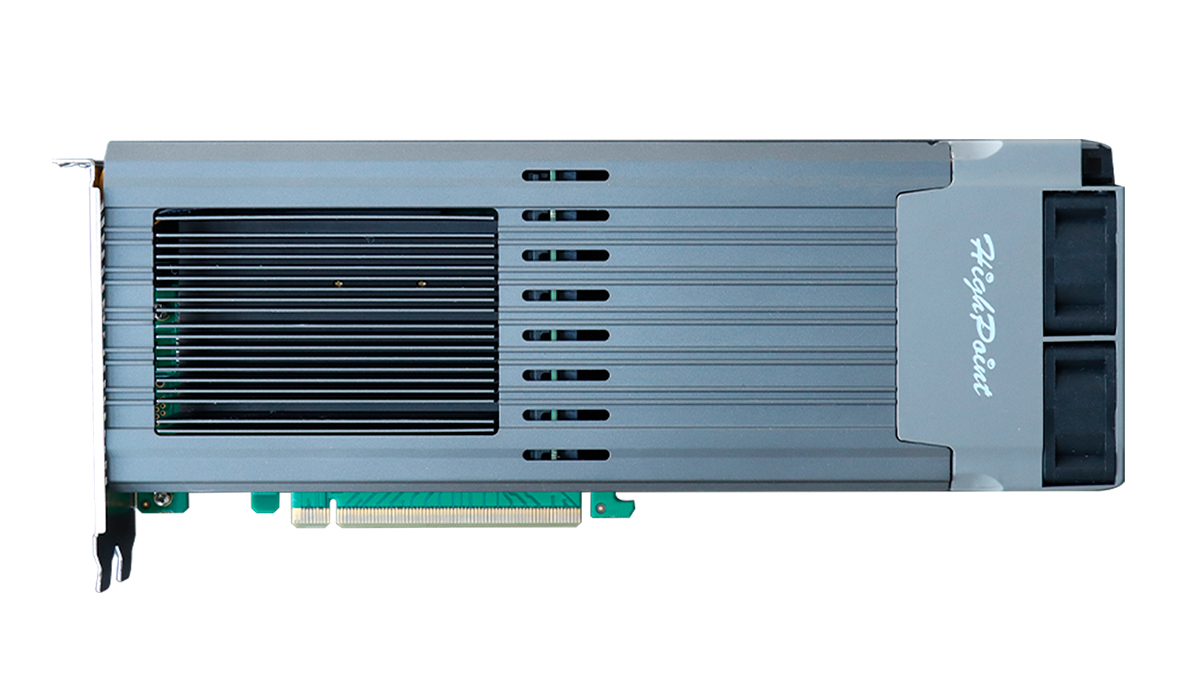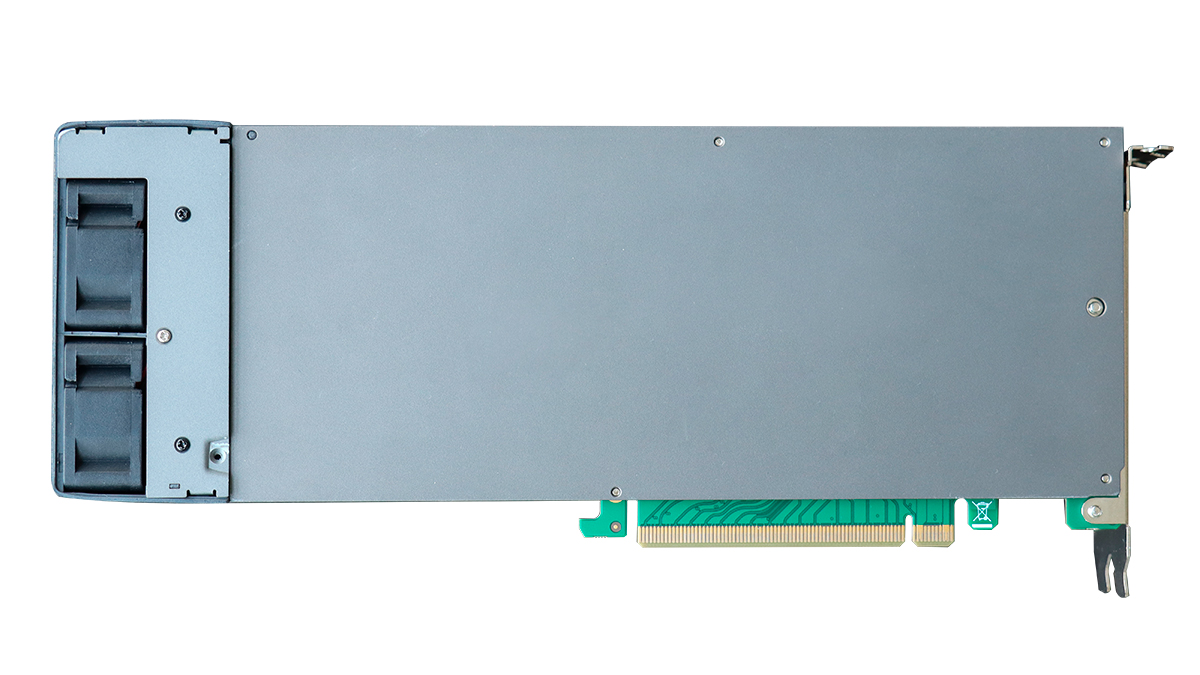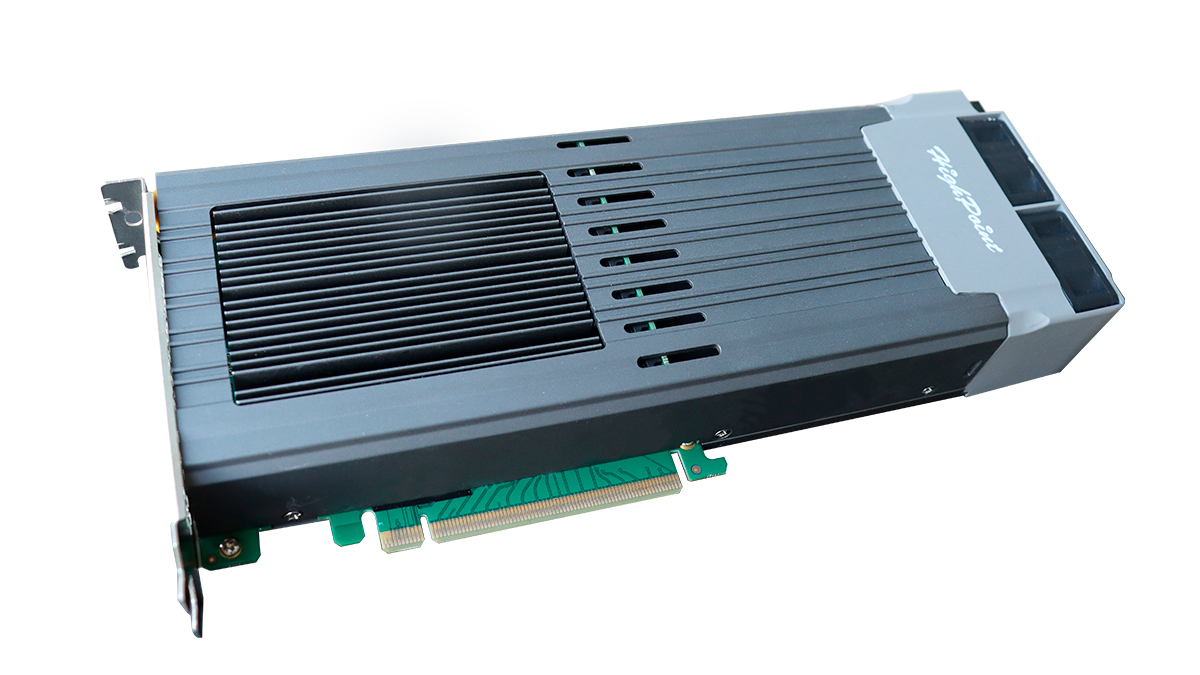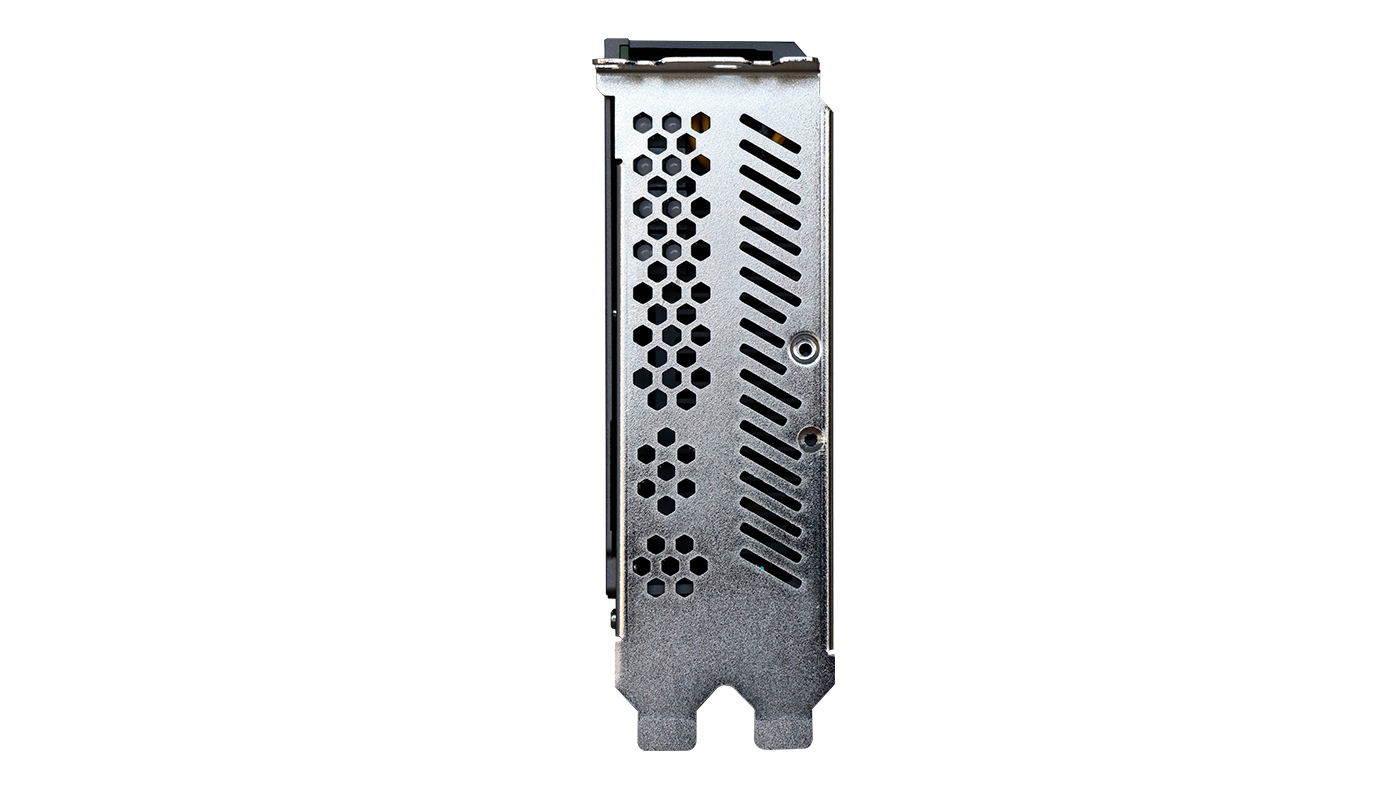
If the best SSDs can't satiate your hunger for ultra-fast storage, you should try HighPoint's latest RocketAIC card, an enterprise-class PCIe 4.0 Add-In Card (AIC) designed for reliability and endurance. The RocketAIC is available with storage densities of up to 122 TB at whopping read and write performance up to 54 GB/s and 36 GB/s, respectively.
The RocketAIC communicates with your system through a regular PCIe 4.0 x16 expansion slot. Unlike other PCIe 4.0 AIC solutions, such as the Sabrent Apex X21 Destroyer or the ASRock Blazing Quad M.2 Card, the RocketAIC doesn't leverage M.2 SSDs. On the contrary, HighPoint's AIC taps the Solidigm D7-P5520 E1.S, a 114-layer TLC drive.
The RocketAIC features eight E1.S NVMe ports to house up to eight E.1S drives. You can't feed eight SSDs with only the expansion slot, so the RocketAIC has a standard 6-pin PCIe power connector for external power. An undisclosed Broadcom PCIe 4.0 switch ensures that each E.1S SSD has its own PCIe 4.0 x4 interface.




The AIC features a tools-free design where you can access the E.1S ports by pressing a switch. HighPoint developed a robust cooling solution to keep the E.1S SSDs cool. Heat is always the biggest enemy in AIC setups. The aluminum casing has integrated heatsinks with corresponding vents for heat dissipation. A pair of small, low-decibel cooling fans at the rear of the RocketAIC push air into the card to cool the SSDs.
The RocketAIC comes in two capacities: 30.72 TB and 61.44 TB. However, you can pair two in a dual-drive (cross-sync) setup to hit 122.88 TB of storage. The performance is similar between both capacities. However, the 61.44 TB model delivers read and write speeds up to 27 GB/s and 18 GB/s, respectively. In a dual-drive configuration, however, the performance jumps up to 54 GB/s reads and 36 GB/s writes.
HighPoint RocketAIC Specifications
The 30.72 TB drive consumes around 137.28W of power, while the 61.44 TB model's power draw is rated for 161.298W. For the dual-drive configuration, just multiply the power consumption by two. The RocketAIC supports three RAID 0, RAID 1, and RAID 10 arrays so you can pick between the best performance, added security, or a combination of the two. The only caveat is that it only supports data RAID and not boot RAID, an aspect that may be a deal breaker for some.
The RocketAIC comes in a standard full-height, full-length, dual-width form factor, measuring 7.68 x 4.37 x 0.85 inches (195.07 x 111 x 21.59mm).
The RocketAIC is compatible with macOS, Linux, and Windows operating systems. However, you must pay attention to the part number. The RA7749EM with the "EM" suffix is for macOS, while the RA7749EW with the "EW" suffix denotes the variant for Windows and Linux systems. Regardless of the operating system support, the drives have identical pricing, so you don't have to worry about one being more expensive than the other because you're on a Mac.
The RocketAIC has a three-year warranty regardless of the capacity or configuration. It's mind-boggling why HighPiont's warranty is so short, considering that the RocketAIC is a workstation product that costs an arm and a leg. Even Solidigm stands behind its D7-P5520 SSD with a five-year warranty. While the three-year warranty is equal across the board, the endurance limits vary between each RocketAIC SKU. In a single drive configuration, HighPoint backs the 30.72 TB and 61.44 TB drives with 7 PBW and 14 PBW, respectively. In contrast, the dual-drive 61.44 TB and 122.88 TB setups correspond to 56 PBW and 112 PBW, respectively.
The RocketAIC targets the professional and workstation markets and has a price tag that reflects that. The 30.72 TB drive retails for $4,999.99, and the 61.44 TB drive will set you back $9,999.99. HighPoint hasn't listed the dual-drive configurations on the company's eStore yet. However, the pricing should be twice the single models since the dual-drive package combines two single AICs.







